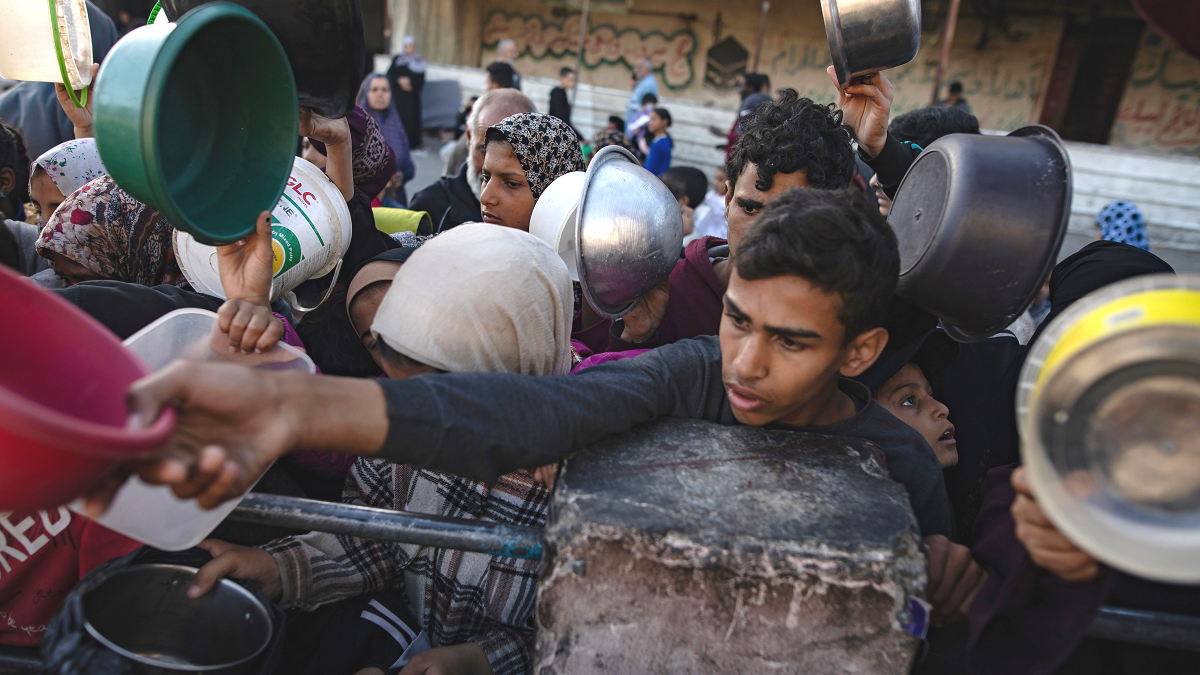Israel-Gaza: Aid reaches Gaza shore in first sea delivery
- Published
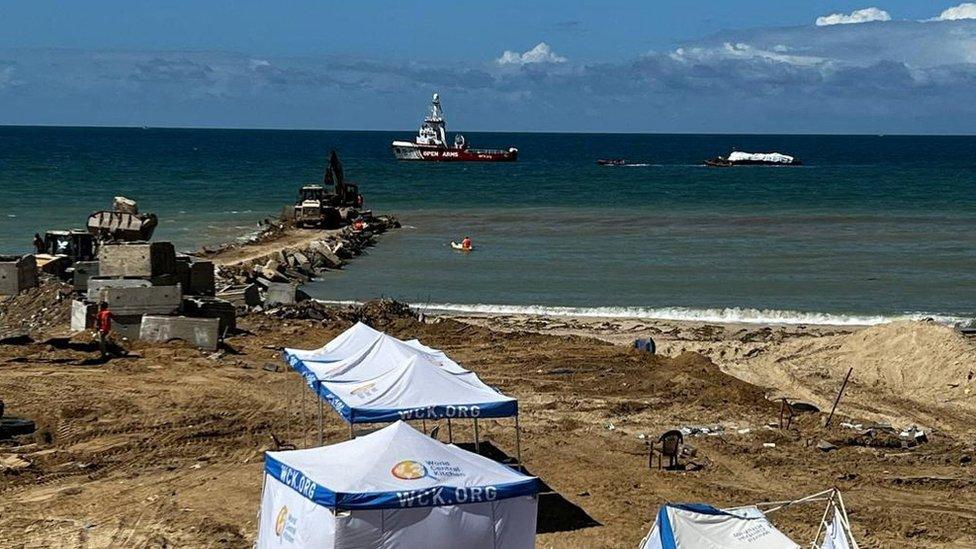
A World Central Kitchen barge loaded with food is the first maritime shipment of aid to arrive in Gaza
The first maritime humanitarian aid shipment to Gaza has been unloaded on to the shore.
The US charity behind the mission, World Central Kitchen (WCK), is carrying out the mission in co-operation with the United Arab Emirates.
The shipment contained 200 tonnes of food desperately needed for Gaza, which the UN says is on the brink of famine.
Aid agencies have accused Israel of impeding aid deliveries, a charge vehemently denied by Israeli officials.
They say Israel is allowing aid through two crossings in the south and has blamed aid agencies of logistical failures.
Much of the Gaza Strip has been devastated during the Israeli military operations that began after Hamas gunmen attacked southern Israel on 7 October, killing about 1,200 people and seizing 253 hostages.
More than 31,400 people have been killed in Gaza since then, the Hamas-run health ministry says.
Saturday's shipment arrived on board Spanish charity ship Open Arms. Its cargo includes beans, carrots, canned tuna, chickpeas, canned corn, parboiled rice, flour, oil, salt and pallets of dates, which hold spiritual significance during Ramadan.
It had been checked by Israeli officials in port in Cyprus.
It marks the start of a trial to see if the sea route would be more effective than air and land deliveries.
Aid agencies have repeatedly warned that no method of relief is as effective as delivery by land, but they say Israeli restrictions mean a fraction of what is needed is getting in.
In a statement, WCK said: "All cargo was offloaded and is being readied for distribution in Gaza."
Teams worked through the night to get the aid on to dry land.
Gaza has no functioning port, so a makeshift jetty stemming from the shoreline was built by WCK's team using rubble from destroyed buildings.
However, there are few details on how the aid distribution will work, with UN relief agencies having described huge obstacles to getting relief supplies to those in need.
Earlier, WCK's founder, celebrity chef José Andrés, wrote on X, external (formerly Twitter) that all the food aid from the barge had been loaded into 12 lorries.
"We did it!" he wrote, adding that this was a test to see if they could bring even more aid in the next shipment - up to "thousands of tons a week".
In a statement, the Israel Defense Forces (IDF) said troops had been deployed to secure the shoreline.
Gaza aid lifted ashore from barge
This delivery has been highly anticipated since the ship set off from the port of Larnaca on Tuesday.
Cypriot President Nikos Christodoulides told journalists: "The first ship has started its return to Cyprus, and we are ready to dispatch the second ship."
The second cargo vessel is at Larnaca's port awaiting a signal to sail with 240 tons of aid including bulk products.
WCK said in addition it would carry two forklifts and a crane to help with future maritime deliveries to Gaza.
If this sea mission is deemed a success, other aid ships will likely follow as part of an international effort to get more aid into Gaza. The ships would use a newly opened sea route to travel directly to the region.
Separately, the US is planning to build its own floating dock off the coast to boost sea deliveries. The White House says it could see two million meals a day enter Gaza, but while a military ship is en route with equipment on board to build the dock, questions remain about the logistics of the plan.
The World Food Programme had to temporarily pause its land deliveries after convoys came under gunfire and looting. And an air drop turned deadly last week when five people were reportedly killed when a parachute failed and they were hit by the aid package.
The UN has warned that famine is "almost inevitable" in Gaza without urgent action, and the EU's foreign policy chief Joseph Borrell has accused Israel of creating a "manmade" disaster and using starvation as a weapon of war.
The Israeli army has continued its attacks across the Gaza Strip with reports of at least 36 people killed after a house near the Nuseirat refugee camp in central Gaza was struck.
It comes as Israel's Prime Minister Benjamin Netanyahu approved plans for an assault on the southern city of Rafah, which is sheltering more than a million displaced people.
Negotiations for a ceasefire in Gaza are due to resume on Sunday. On Friday, Israel dismissed Hamas's latest proposal.
Hamas said it gave mediators a "comprehensive vision" of a truce, but Mr Netanyahu called this "unrealistic".
Israel's spy chief, David Barnea, is expected to meet Qatar's prime minister and Egyptian officials in Doha on Sunday to iron out "the remaining gaps between Israel and Hamas".
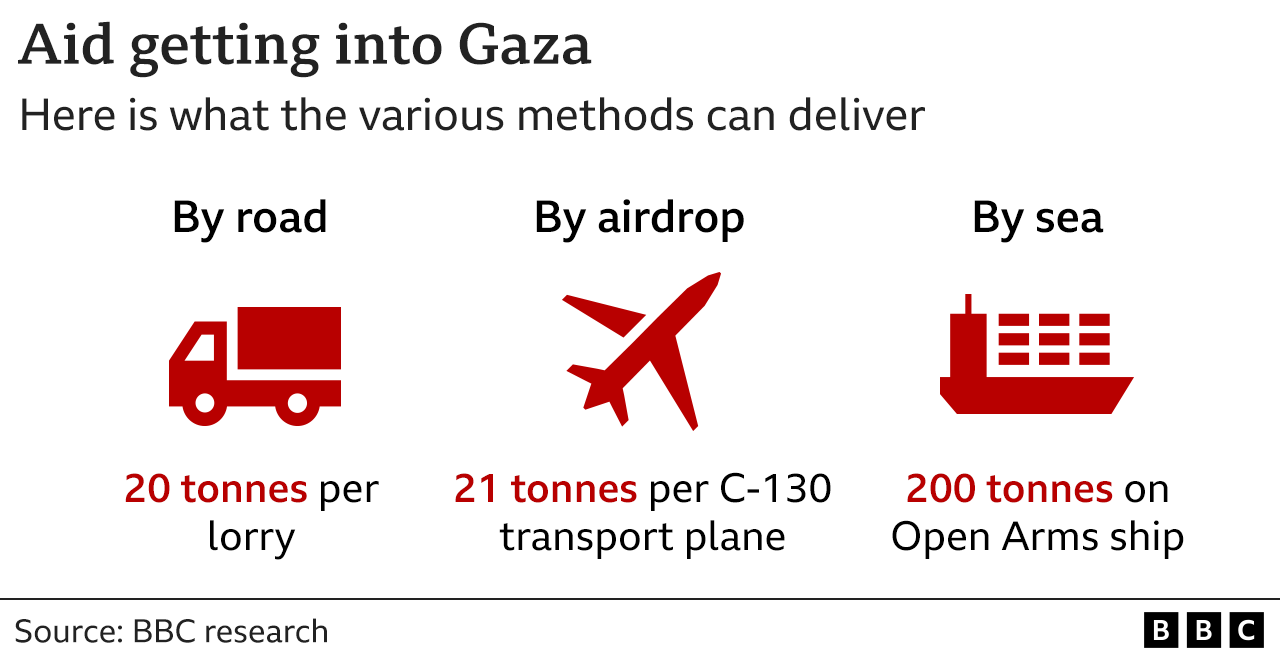
Related topics
- Published15 March 2024
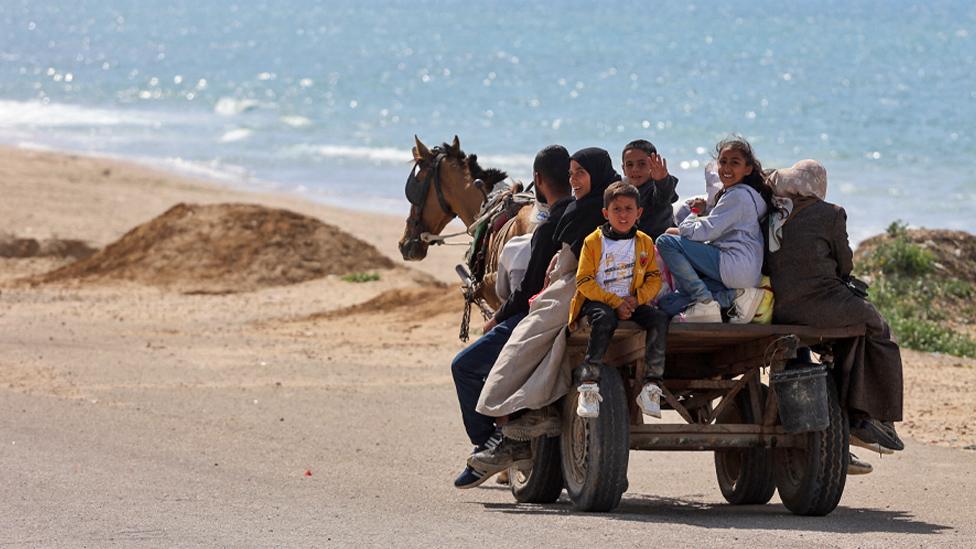
- Published12 April 2024
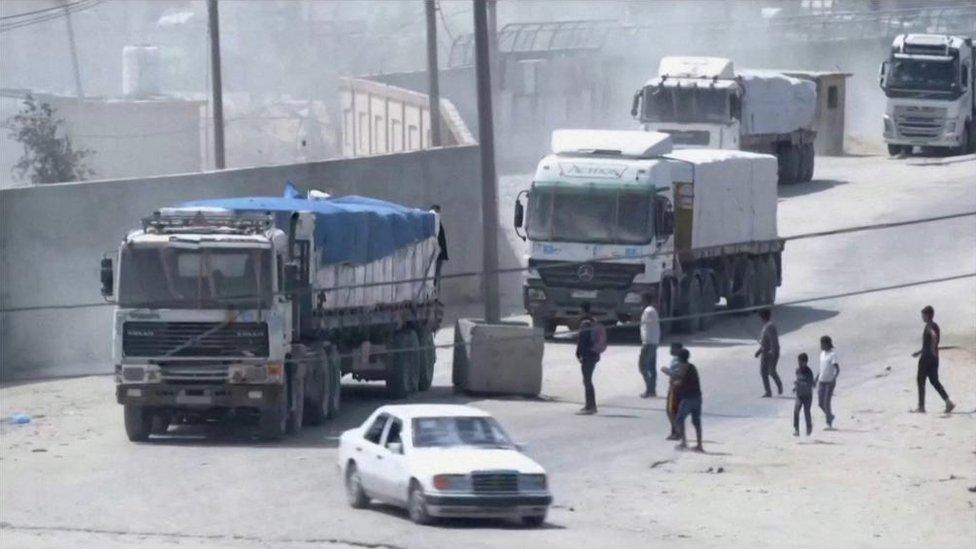
- Published15 March 2024
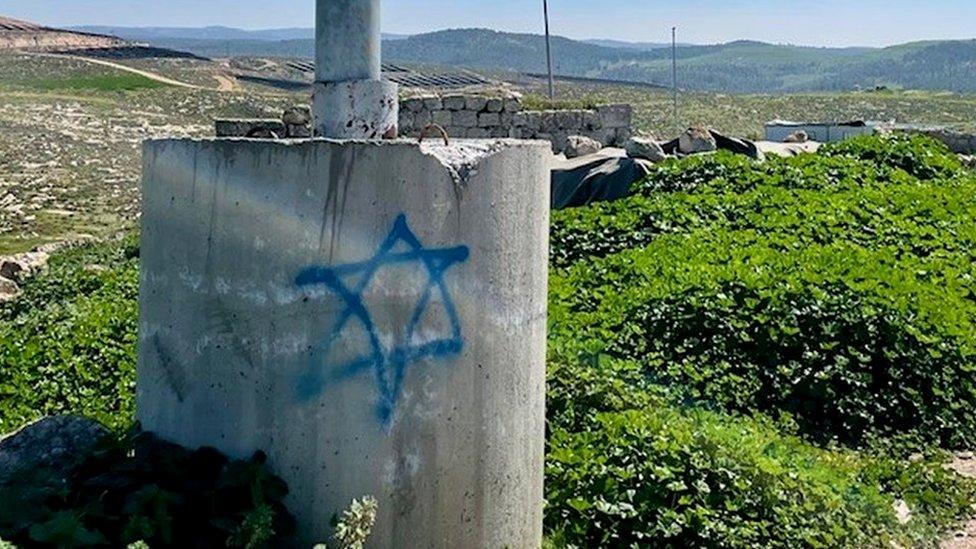
- Published13 March 2024
